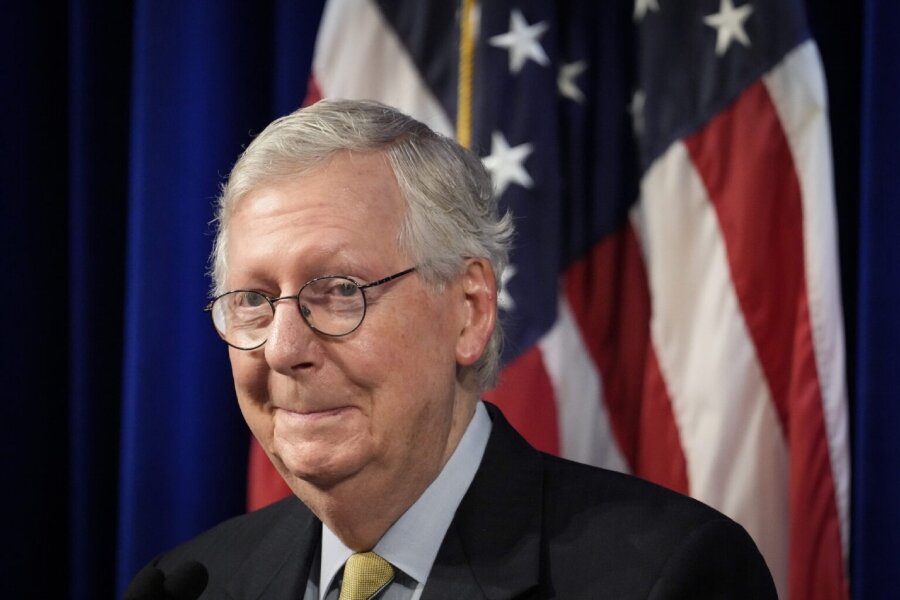A Senate appropriations panel has advanced an $852 billion Pentagon funding bill that includes about $1 billion in aid for Ukraine, which comes as President Donald Trump has hardened his demands for Russian President Vladimir Putin to negotiate a peace deal.
The Senate Appropriations Committee approved the measure on July 31 in a 26–3 vote. It would provide $800 million for the Ukraine Security Assistance Initiative and $225 million for the Baltic Security Initiative, both aimed at strengthening Kyiv’s defenses and supporting regional allies against Russia’s invasion.
The bill would exceed Trump’s budget request by $21.7 billion, or 2.6 percent, and include major boosts for munitions replenishment, shipbuilding, missile defense, and drone technologies designed to counter battlefield threats from Russia and China. It would also fully fund a 3.8 percent pay raise for all U.S. service members and an additional 10 percent raise for junior enlisted troops.
The measure must still clear the full Senate and be reconciled with a House version aligned with Trump’s lower $831.5 billion proposal, which omits Ukraine aid.
Sen. Mitch McConnell (R‑Ky.), who chairs the defense subcommittee, described Ukraine’s role as central to U.S. military readiness.
“The Secretary of the Army rightly calls Ukraine ‘the Silicon Valley of warfare.’ The Navy considers the maritime fight between Russia and Ukraine as the Black Sea Battle Lab and recognizes the need for rapid innovation,” McConnell said during the hearing. “But abandoning the foremost experts of drone warfare would be strategic self-harm. Shutting off engagement with Ukraine would undermine our military’s efforts to prepare for the modern battlefield.”
There was no vocal opposition to the Ukraine provisions during the Senate panel’s debate on Thursday, but the House version of the defense bill demonstrated deep divisions among Republicans over continued aid. Earlier in July, Rep. Marjorie Taylor Greene (R‑Ga.) introduced an amendment seeking to bar any funds in the measure from being used for Ukraine.
“My amendment would be that none of the funds made available in this act may be used for assistance to the Ukraine war,” Greene said during floor remarks on July 17. “This is a war that has nothing to do with America. Ukraine is not a NATO member nation, and it’s not the American people’s responsibility to pay for this war, and it’s not the American military’s responsibility to fund it.”
The amendment, which drew support from a small bloc of Republicans, including Reps. Thomas Massie (R‑Ky.) and Paul Gosar (R‑Ariz.), ultimately failed when 76 Republicans joined all Democrats to defeat it. The GOP divide over Ukraine policy could come to the forefront once again as the lawmakers negotiate a final compromise on the Pentagon budget in the weeks ahead.
The Senate panel’s vote comes as Trump has signaled growing impatience with Moscow. Speaking in Scotland on July 28, the U.S. president said he would shorten the 50‑day window he had given Putin to agree to a cease‑fire, warning that Russia now has closer to 10 or 12 days to make progress or face sweeping new sanctions and tariffs. Trump told reporters he’s “very disappointed” in the Russian president, citing continued Russian strikes on Ukrainian cities.
Kremlin spokesman Dmitry Peskov said Moscow had “taken into account” Trump’s remarks but reiterated that Russia would continue pursuing its objectives in any settlement. Former Russian President Dmitry Medvedev went further, accusing Trump of playing “a game of ultimatums” that risked escalating into a broader conflict involving the United States.
Separately, Ukrainian President Volodymyr Zelenskyy announced on July 24 that Kyiv is drafting a contract to sell between $10 billion and $30 billion worth of drones to the United States under preliminary agreements with Trump. Zelenskyy said the deal would deepen defense cooperation and bolster Ukraine’s growing drone industry, which has also secured production partnerships with Denmark and other European allies.
Share your thoughts by scrolling down to leave a comment.













